
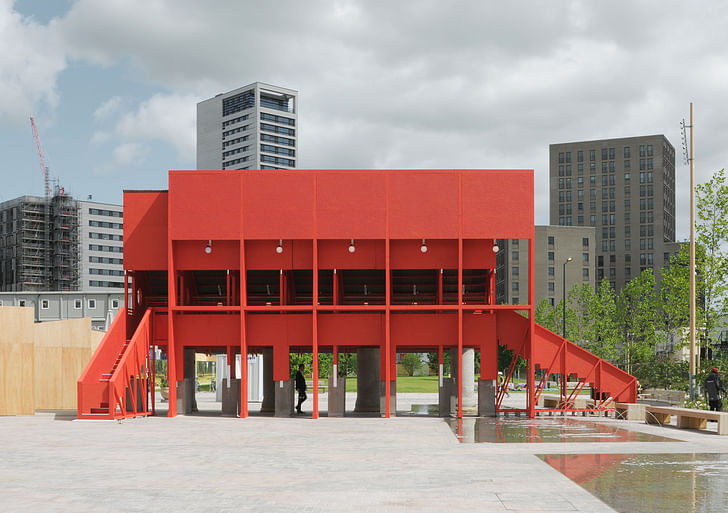
There is a poetic rigour to the work of the practices I interviewed for my Irish Times piece: The Rising Stars of Irish Architecture. I’d spent all day — from my in-car interview with Douglas Carson, stuck in traffic on the City Quay, to Laurence Lord’s fascinating five minute cultural history of rural Irish housing — trying to avoid using the word ‘poetic’; I feared the cliche.
Driving back home through Dublin rush hour, reflecting, I realised that ‘poetic’ is perhaps the perfect word to use. Not ‘poetic’ in a tourist guidebook Irish-landscape-pub-village-cutesy kind of way. Not a written word, but an act. A poetry that ruptures; creates new terrains of imagination on which a discourse can emerge. What Franco Berardi describes as an act of excess that is “hinting beyond the limits of conventional meaning” or, revealing “a possible sphere of experience that was previously not experienced: the experienceable.” This is what I mean by poetic rigour.
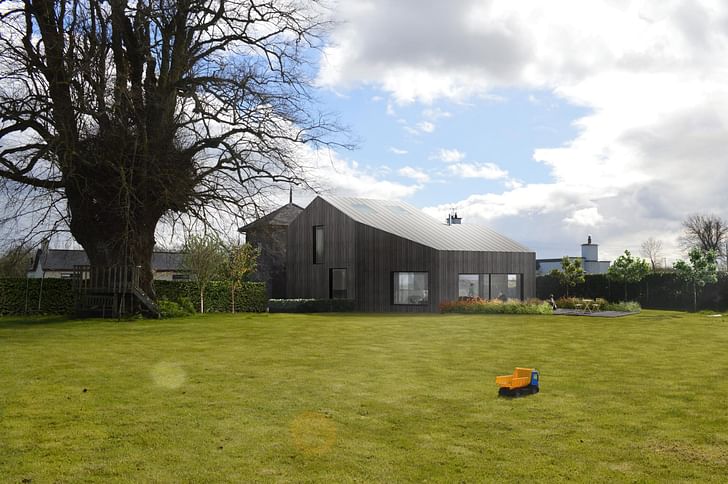
There is passion to Andrew Clancy’s riffs about a small piece of seemingly insignificant agricultural concrete structure, in which he finds harboured enough narrative power to generate a whole new, scheme. This is a poetic praxis. A way of working that brings clients into a conversation that is tactile. Andrew tells me that they part company with any architect who makes themselves difficult to understand. The rough concrete structure opens up new ways of talking about things previously consigned to memory. Why was this structure changed? What does it tell us about the site? Who were the people who lived here? But, most importantly they ask not; what is it? but; what does it do? What possible futures might be lurking here in the mundane — the poetic way.
These buildings are not ‘machines', they are carefully curated collections. The building and the context entangled together in a mutually contingent dance.
The planted screens; simple, green, planted screens, from another land, extending the hand of friendship to a long forgotten Donnybrook street. TAKA’s mews house refurbishment, born out of their obsessive traveling; collecting architectural artefacts from around the world. They refuse the atonal hum of generic continental modernism — this: here; here; here and here. These buildings are not ‘machines', they are carefully curated collections. The building and the context entangled together in a mutually contingent dance.
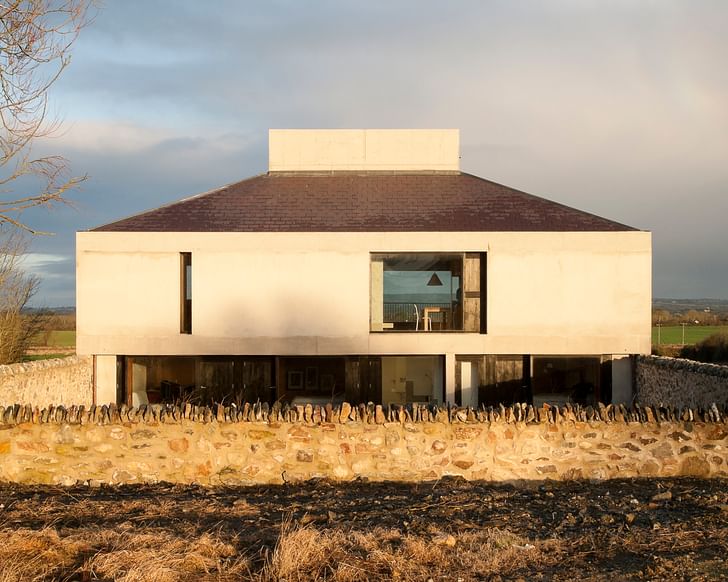
Steve Larkin’s ‘bilingual’ Bogwest house; able to communicate with equal ease, in both the ancient, long forgotten mother tongue of farmhouses past, and the unfamiliar modern patter of farmhouses new. The subtle cultural nuances of geographical boundaries learnt from hours at the fiddlers chin rest, all come to bare on an architecture that improvises new ways of playing; scored out on the folk manuscript of the traditional rural Irish landscape. This is not to be romantic — the flat capped peat cutter on a misty morn. These are rough and callous hands born of physical engagement; working hard to discover hidden cultural artefacts that give us the past, locate us in the present and open up the future without ever disconnecting the three.
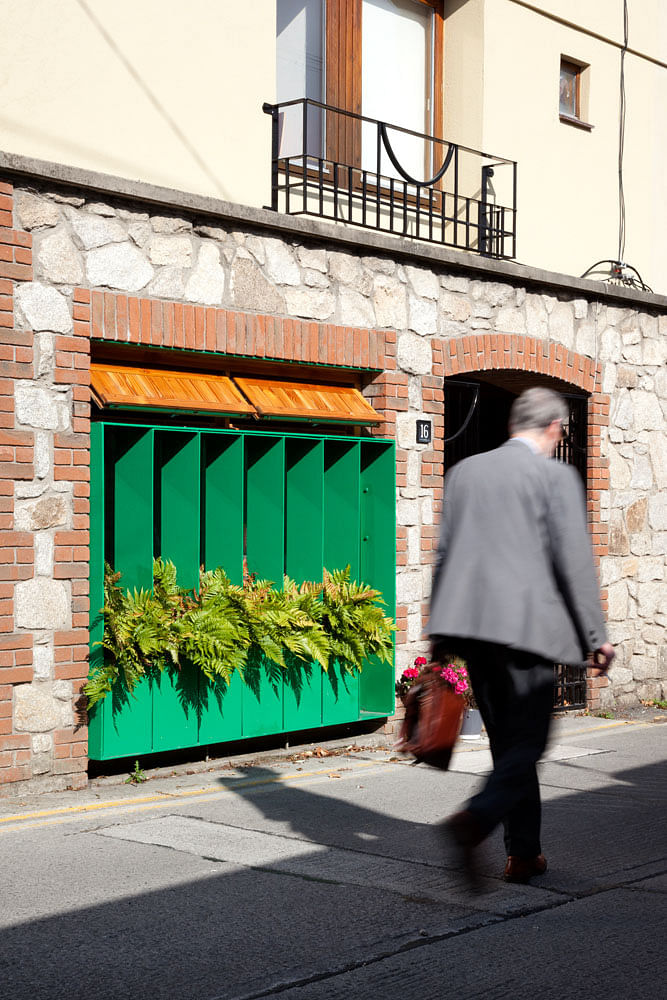
This is an architecture that teaches us to stammer in our own language. What Gilles Deleuze and Felix Guattari, in their book on Kafka called a minor literature. This is not poetry, this is the poetic — performative, ‘minor’ architecture, that, by its very nature creates the conditions for new configurations of language to be used to describe it, without ever containing it. A discourse is generated. And what a wonderful discourse it is. Collaborative in nature — TAKA, Clancy Moore and Steve Larkin sharing not just office space, but ideas; time; energy; and perhaps most importantly friendship. Generous in disposition — all different; but, refreshingly, without recourse to defence. And, humble in manner — out of the traumatic labour of the recession they were birthed; and this they have not forgot.
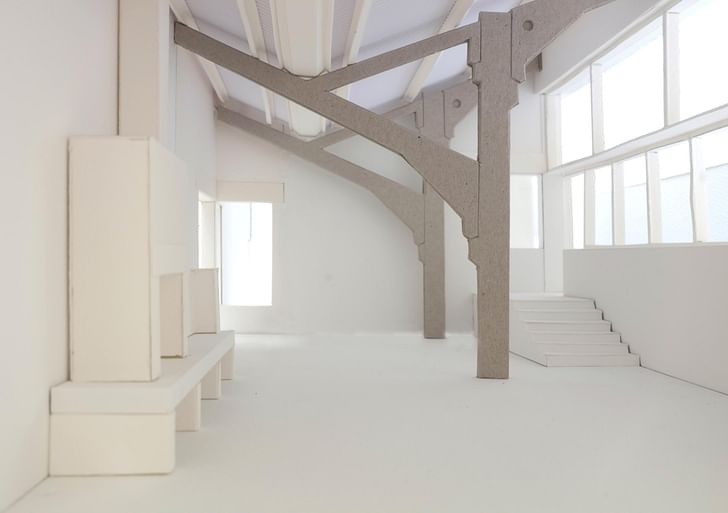
Writer | Urban Theory | Architect Interested in how we understand, record an interact with cities in light of the work of thinkers like Michel Foucault, Gilles Deleuze and Felix Guattari.
No Comments
Block this user
Are you sure you want to block this user and hide all related comments throughout the site?
Archinect
This is your first comment on Archinect. Your comment will be visible once approved.